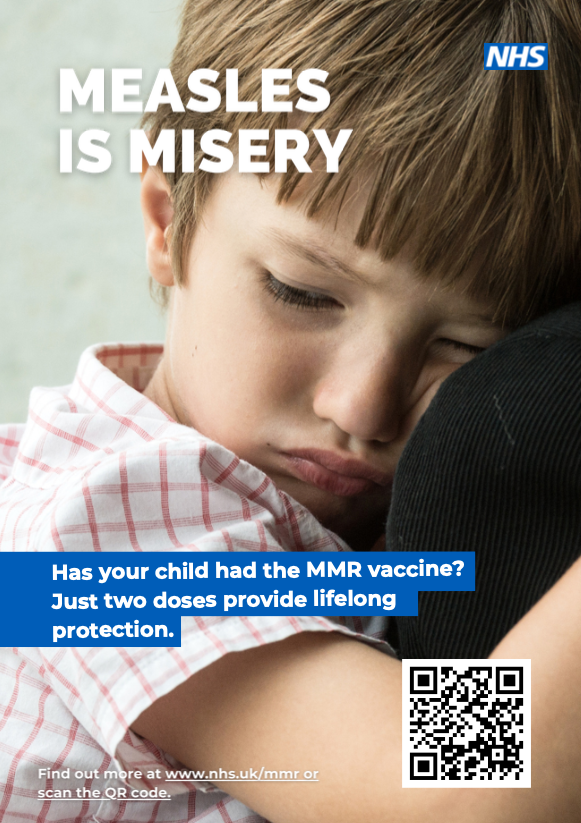Primary Times - the definitive what’s on and where to go family guide of activities and events for children of primary school age. Things to do with your kids during the school holidays including arts and craft activities, music and theatre for children, parties, competitions, days out, and family attractions along with term time drama schools, dance classes, after school clubs and sports activities. Things to do at a place near you!
NHS urges people in South East London to get vaccinated amid rise in measles cases
 As measles cases continue to rise in London, NHS London is urging parents in London to ensure their children are protected as they return to school.
As measles cases continue to rise in London, NHS London is urging parents in London to ensure their children are protected as they return to school.
Since January 2024 there have been 2,149 confirmed cases of measles with 62% of cases being in children under the age of 10 and 43.7% being in London, making the capital one of England’s worst affected areas.
Measles is extremely infectious and sadly in some instances can have very serious long term and life-threatening consequences. The best protection against measles is the MMR vaccination.
Also, unvaccinated children who come into contact with measles could miss significant periods of school, as they may be required to stay off school for up to 3 weeks (21 days) to limit transmission.
The MMR vaccine protects against measles, mumps and rubella. Missing vaccinations leaves children and adults vulnerable to measles, which people can catch at any age.
Assad from Lewisham was 17 in 2008 when measles struck. Moving to the UK as a child meant that he missed the chance to get an MMR jab when it was routinely offered.
As he was preparing for college and a new phase of his life, Assad was suddenly left bed-ridden with an illness that turned out to be measles.
“I remember it was the summer before the first year of college and I remember being excited about that, and then just suddenly getting really sick. I was so sick that I couldn’t move out of bed and ended up staying at home for the whole summer, just in case anyone caught it from me.”
Recovering from the immediate symptoms of measles was just the start of Assad’s journey: “In terms of the recovery, I would say I lost confidence in myself. I’d been doing a lot of exercise and getting quite fit, just getting ready for college, and falling ill with measles meant I lost all of that progress I’d made.”
Now aged 32, Assad is doing everything he can to protect his own children.
“It goes without saying that you don’t want this to happen to your kids. Nowadays my wife keeps track of the immunisations and I often go with them for the blood tests or jabs just so I can make sure that I can be with them and everything’s okay.”
“I would say it's important to put your child first in terms of ensuring that you're giving them the best opportunity in life, and I think these vaccinations really do help. I felt close to death at some points when I had measles at 17, I couldn’t watch my children at age three and six go through that.”
London GP Dr Oge Ilozue said: “When we think of measles, we often think of it as something which only affects young children. The truth is, however, that the consequences of missing childhood vaccinations can strike at any age, and lead to serious illness.
“It’s vital that people protect their children, their loved ones and themselves by ensuring they’re vaccinated, especially when they are first offered. However, it’s never too late to get protected.”
Measles, mumps and rubella are highly infectious illnesses that can easily spread between unvaccinated people.
Complications from measles, mumps and rubella can be potentially life changing including blindness, deafness and swelling of the brain (encephalitis).
Estimates show that one person infected with measles can pass the disease on to around 15 other unvaccinated people, making it one of the most infectious diseases worldwide; and more infectious than COVID-19. Meanwhile, one in five people with measles will need to be admitted to hospital for treatment.
Parents and carers can find out more about the different vaccines they and their child should have and when by visiting www.nhs.uk and searching for ‘NHS vaccinations and when to have them’.



